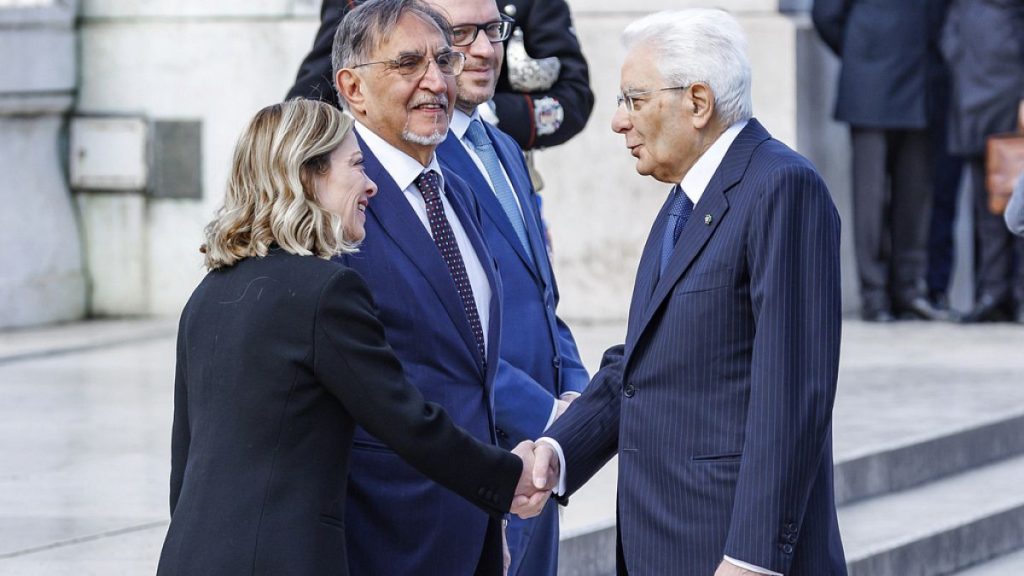Italy recently marked the 79th anniversary of its liberation from Nazi occupation and fascist rule with commemorations across the country. The celebrations were overshadowed by a media storm regarding suspected censorship and discussions on the country’s complicity in the Holocaust and World War II-era crimes. The controversy erupted after state-run broadcaster RAI decided to withdraw a monologue on fascism by author Antonio Scurati from a Saturday night talk show. Host Serena Bortone ended up reading the monologue on-air herself, and it was later published in various Italian newspapers and websites. In the monologue, Scurati denounced fascism and accused Premier Giorgia Meloni’s conservative party of attempting to rewrite history by not acknowledging Italy’s fascist past.
Scurati’s monologue recounted two infamous incidents from Italian history – the 1924 assassination of Socialist lawmaker Giacomo Matteotti by Mussolini’s hitmen and the 1944 massacres of Italian civilians during the final days of Nazi occupation. The author later accused Meloni of using her platform to target him personally. The controversy escalated further when critics accused RAI of censorship for dropping Scurati’s monologue, prompting the broadcaster to launch an internal investigation. Meloni, who leads the Brothers of Italy party with neo-fascist origins, denied any censorship on her part and posted Scurati’s monologue on her Facebook page. The incident has triggered a debate in Italy about fully reckoning with its fascist past compared to how Germans have dealt with their history post-World War II.
Critics have long claimed that RAI, dubbed “Telemeloni” for its perceived ideological tilt towards Meloni’s government, has been biased in its programming choices. While RAI executive Paolo Corsini denied censoring Scurati’s monologue for ideological reasons, Meloni accused the left-wing opposition of creating a scandal and misrepresenting the situation. Despite attempts to distance her party from neo-fascist roots and build ties with Italy’s Jewish community by supporting initiatives like a Holocaust museum, Meloni has faced criticism for not declaring her party as “firmly anti-fascist”. The opposition views her avoidance of the term “anti-fascist” as a refusal to acknowledge the atrocities committed during Italy’s fascist rule.
Italian President Sergio Mattarella, who held a ceremonial position above political affiliations, emphasized the importance of remembering the Nazi-fascist barbarism of World War II during the recent commemorations. Amidst the celebrations for Liberation Day, Mattarella laid a wreath with Meloni at the tomb of the unknown soldier in Rome before traveling to Civitella, the site of a 1944 Nazi massacre. There, he urged Italians to never forget the massacres, murders, deportations, and other violations that occurred on Italian soil during World War II. Mattarella highlighted the necessity of preserving memory for the sake of the future, emphasizing that without understanding the past, there can be no progress.
The row over censorship and the legacy of fascism in Italy has exposed underlying tensions regarding the nation’s history and political landscape. While Meloni’s rise to power as the first hard-right leader since World War II has sparked renewed discussions about Italy’s fascist past, it has also raised questions about the country’s commitment to acknowledging historical atrocities. The controversy surrounding Scurati’s monologue has underscored the need for a more comprehensive reflection on Italy’s past and the role of media in shaping national narratives. Moving forward, the debate around censorship, historical memory, and political ideologies will likely continue to influence public discourse in Italy as the country grapples with its complex legacy.


